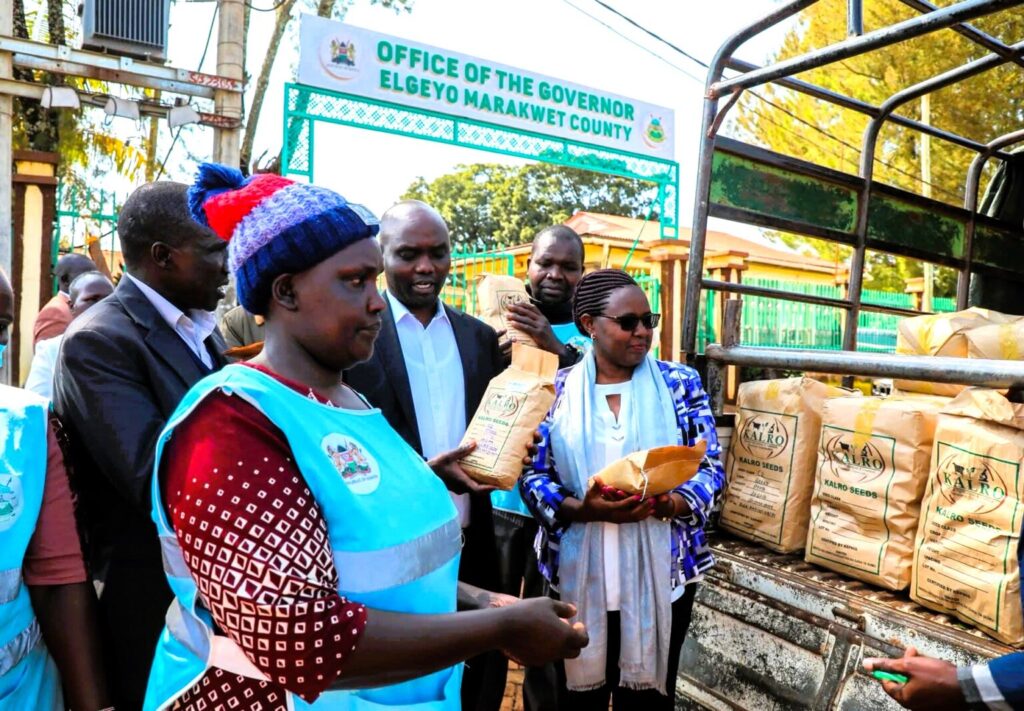Elgeyo Marakwet County has rolled out a major nutrition and food security initiative through the distribution of iron-rich Nyota bean seeds. The program targets households across Keiyo South, Marakwet West, and Keiyo North subcounties under the REACTS-IN initiative, with a focus on combating severe malnutrition and strengthening maternal and child health.
The current phase involves the distribution of 15 tonnes of bean seeds, following a successful exercise last month where 2.5 tonnes were issued to farmers in Marakwet East. In total, 7,500 households are set to benefit, each receiving 2 kilograms of seeds. These beans are specially bred to be nutrient-dense, making them a valuable dietary supplement for vulnerable populations.
The county has prioritized groups such as persons living with disabilities, expectant mothers, and the elderly. Each beneficiary household is expected to produce between 40 and 60 kilograms of beans from the initial allocation, providing both a reliable food source and an opportunity for income generation. With a maturity period of just 70 days, Nyota beans are particularly suited for short-season cultivation, making them an efficient crop for addressing food shortages.
Beyond nutrition, the initiative aligns with the county’s broader wealth creation strategy. By promoting the adoption of high-yielding, nutrient-rich crops, the county is encouraging households not only to meet their dietary needs but also to generate income from surplus harvests. Farmers are expected to access training on best practices in bean production, ensuring improved yields and sustainability of the program.
The introduction of iron-rich beans comes at a critical time when malnutrition remains a challenge in various parts of the region. Iron deficiency is a leading cause of anemia, particularly among women and children, and the integration of biofortified crops into local diets offers a sustainable solution.
This nutrition drive represents a significant step in tackling health and food security challenges simultaneously. By combining farmer empowerment with community nutrition goals, the county aims to create a healthier, more resilient population while opening pathways for agricultural prosperity.

